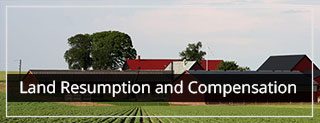Planning and Environment
Court Rejects Challenge to Amber Light Approval
The ‘amber light’ approach adopted by the Land and Environment Court involves the delivery of an interim judgment which falls short of an outright refusal of an appeal, but which identifies elements of concern in the application which, if amended, could result in the...
Conservation Incentive Provisions Under Clause 5.10 – Court Maintains High Threshold
The policy initiative underlying the conservation incentive provisions set out in clause 5.10 of the Standard Instrument - Principal LEP, adopted in all Local Environmental Plans, is relatively straightforward. It is intended to facilitate the conservation and...
Proposed Changes to ‘Staged Development’ under the EPA Act following Decision of the NSW Court of Appeal
The policy initiative underlying the conservation incentive provisions set out in clause 5.10 of the Standard Instrument - Principal LEP, adopted in all Local Environmental Plans, is relatively straightforward. It is intended to facilitate the conservation and...
Court Applies the ‘Newbury Tests’ to Reject Unreasonable Conditions of Consent
The imposition of conditions of consent on development consents is a fairly routine and necessary part of the planning process in NSW. As a general proposition any conditions imposed by a consent authority under s80A of the Environmental Planning and Assessment Act...
Existing Use Rights Deemed to Apply to Entire Site
Existing use rights do not necessarily apply to an entire allotment of land. It will always depend upon a range of considerations, including whether the original use, when lawfully commenced or approved, applied to the entire allotment and whether, in the intervening...
The Band Plays On – Physical Commencement under the EPA Act
In the Land and Environment Court decision of Sally-Anne Maree Fagin v Australian Leisure and Hospitality Group Pty Limited [2017] NSWLEC 59, handed down recently, the Applicant sought to shut down the playing of live music at a nearby Hotel on the grounds that the...
Uncertainty in Development Consents – A Matter of Construction
Development consents are required to be framed in clear terms, for the obvious purpose of ensuring that the beneficiary of a consent, successors in title to the land enjoying the benefit of the consent, and the public at large are aware of what has precisely been...
Public Interest Litigation and the NSW Land and Environment Court’s Approach to Costs
The general rule in class 4 proceedings in the Land and Environment Court is that costs follow the event or, more colloquially, the losing party pays the winning party’s costs of the proceedings. In limited circumstances the Court has power to order otherwise. One of...
Monetary Damages Claims in the NSW Land and Environment Court
The NSW Land and Environment Court is a specialist environmental court of superior record, established on 1 September 1980 by the Land and Environment Court Act 1979 (NSW) ("the Court Act"). The Court’s jurisdiction traverses the gamut of civil and criminal matters...
Third Party Participation in Class 1 Proceedings in the NSW Land and Environment Court
Class 1 merit appeals in the Land and Environment Court are typically contests between home owners or developers – appealing the actual or deemed refusal of a development application – and the relevant consent authority. Participation by third parties in class 1...














